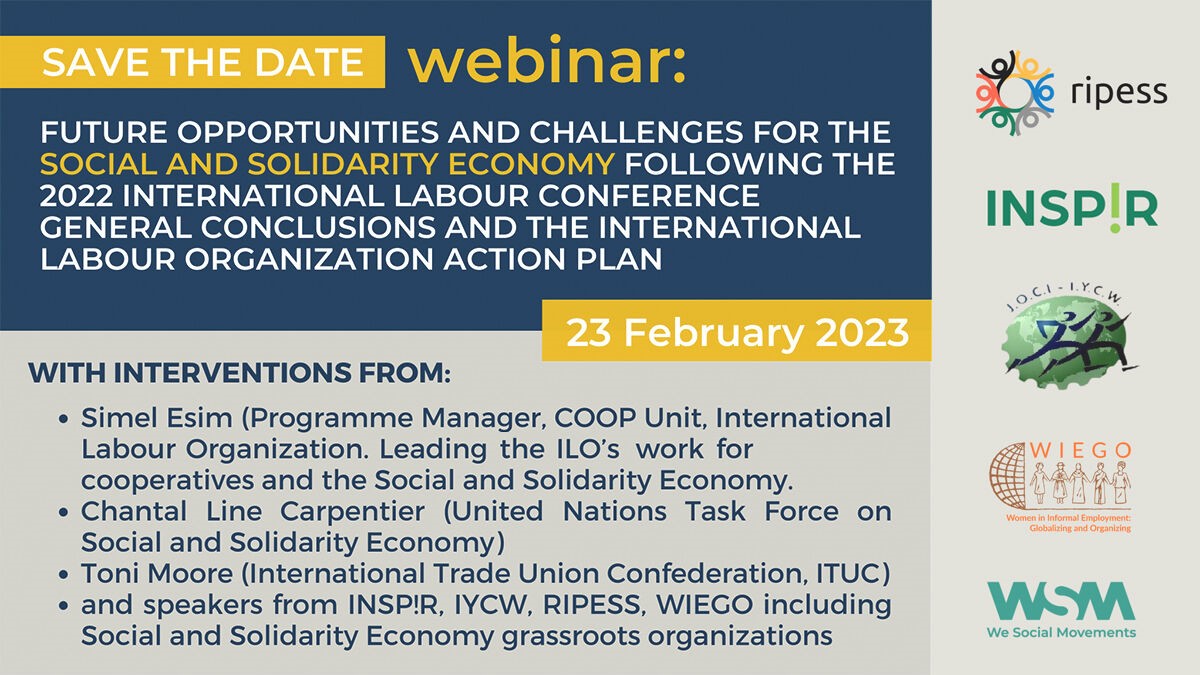SSE: the impact of a socio-financial paradigm shift

The full webinar is available on Youtube, at the following link.
As a follow-up to the ILO’s 2022 International Labour Conference, which included a general discussion on the « social and solidarity economy for a people-centred future of work, » diverse international SSE actors gathered online on February 23rd for a conference on the future of the sector.
Organized by RIPESS Intercontinental, the conference was simultaneously translated into four languages. The objective of the panellists was to analyse the impact of the alternative socio-financial paradigm that SSE represents and its consequences. Among them were Judith Hitchman, from RIPESS, Simel Esim, in charge of ILO’s work on SSE and cooperatives, Chantal Line Carpentier, from the UN SSE task force, Toni Moore, from the International Trade Union Confederation, and finally Sonia Georges, General Secretary of SEWA (Self Employed Women’s Association).
SSE is « a means of systemic and transformative change to the current socio-economic model dominated by capital, » said Judith Hitchman in her introduction to the webinar. A means to ensure that Article 25 of the Universal Declaration of Human Rights is respected, guaranteeing adequate standards of living for individuals and their families. This objective is at the heart of RIPESS’ logic of action, which seeks to build the broadest possible international network to promote effective public policy tools, notably through this type of meetings.
These affirmations and objectives were shared by all the speakers present. The progress made in this area was highlighted by Simel Esim and Chantal Line Carpentier, who highlighted the resolution on SSE voted by the ILO last year and a UN document on SSE and the SDGs, which have formalized a real recognition of the benefits brought by the sector. Toni Moore called for these advances to be taken even further, stating that » [t]he time is now for action that is bold » to achieve a fair and sustainable system.
The roundtable concluded with Sonia Georges, representative of SEWA, an Indian association that helps women organize to bridge their informal work with the formal economy. The association allows the construction of new models of local economy that are sustainable and respectful of people. A very concrete illustration of the perspectives offered by the Social and Solidarity Economy.

